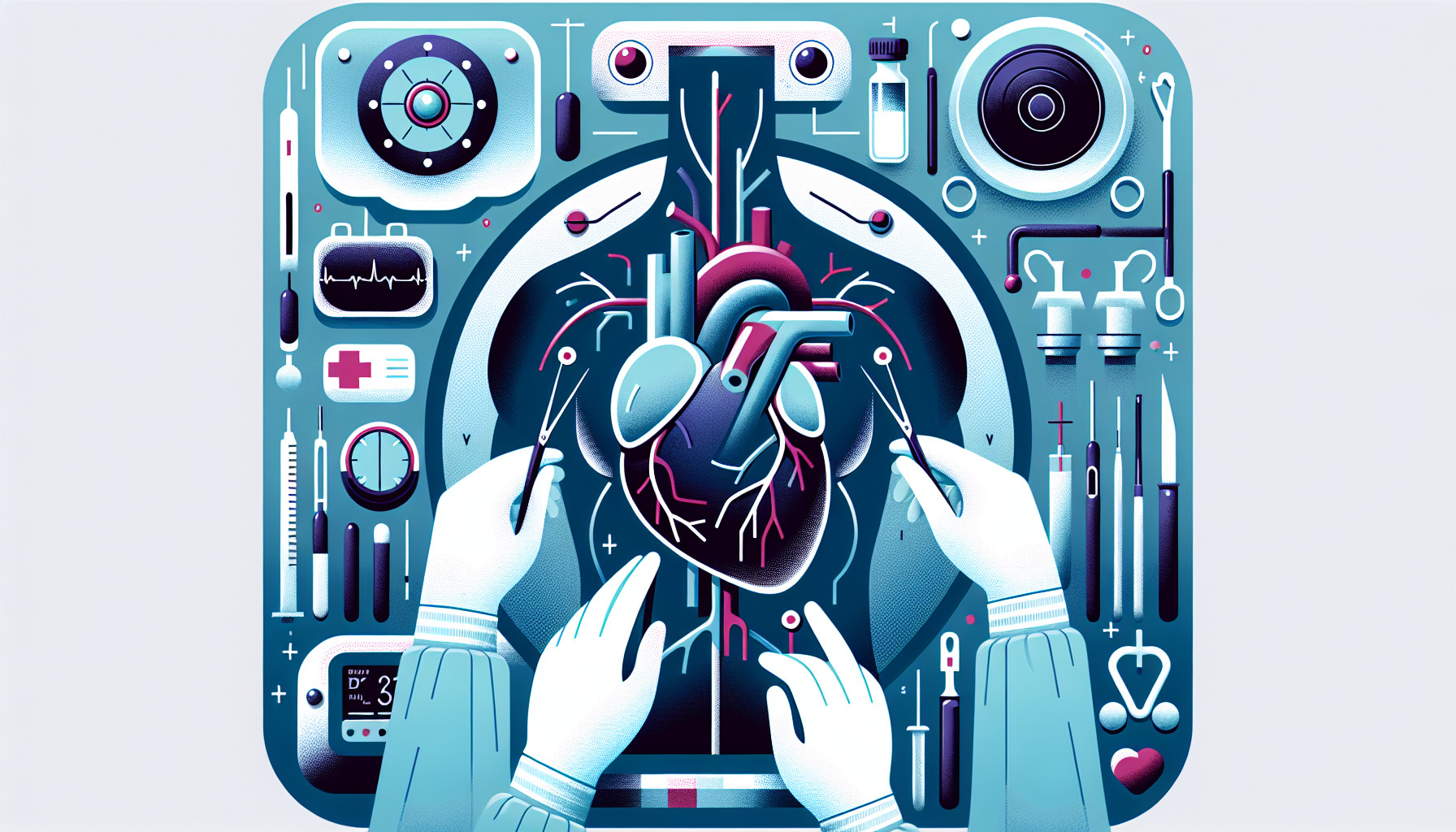Our Summary
This research paper discusses the use of off-pump coronary artery bypass (OPCAB) in heart surgery. Traditionally, heart surgery has used a technique called cardiopulmonary bypass (CPB), but this can have some serious side effects. So, OPCAB has been developed as an alternative, especially for patients who are considered high-risk for CPB, such as the elderly or those with severe organ failure.
OPCAB is a complex procedure that requires careful management of the patient’s blood pressure and other vital signs. The team of doctors, including both the anesthesiologist and surgeons, need to be highly skilled in various medical and surgical techniques, as well as in using imaging technology, to monitor the patient’s condition and make quick decisions if problems arise.
The paper emphasizes the importance of clear and effective communication between the doctors during the surgery, and the need for frequent adjustments based on the patient’s condition. The paper suggests that with these elements in place, OPCAB can be a successful alternative to traditional heart surgery methods.
FAQs
- What is off-pump coronary artery bypass (OPCAB) and how does it differ from cardiopulmonary bypass (CPB)?
- Why is OPCAB considered a better option for high-risk patients, such as the very elderly and patients with impending end-organ failure?
- Why is flawless communication between the anesthesiologist and surgeons vital during OPCAB?
Doctor’s Tip
A doctor might tell a patient undergoing coronary artery bypass surgery to make sure to follow all post-operative care instructions carefully, including taking medications as prescribed, attending follow-up appointments, and participating in cardiac rehabilitation. It is important to maintain a healthy lifestyle with a balanced diet, regular exercise, and avoiding smoking or excessive alcohol consumption to help ensure the long-term success of the surgery. It is also important to monitor for any signs of infection, bleeding, or other complications and to seek medical attention if any concerns arise.
Suitable For
Patients who are typically recommended for coronary artery bypass surgery include those with:
- Severe coronary artery disease that cannot be adequately managed with medications or less invasive procedures such as angioplasty or stenting
- Multiple blockages in the coronary arteries that affect blood flow to the heart muscle
- Left main coronary artery disease
- Diabetes mellitus with coronary artery disease
- Chronic kidney disease with coronary artery disease
- Severe left ventricular dysfunction
- Previous failed coronary artery interventions
- High risk for complications associated with cardiopulmonary bypass, such as the elderly or patients with significant comorbidities
It is important for patients to undergo a thorough evaluation by a multidisciplinary team of cardiologists, cardiac surgeons, and anesthesiologists to determine the most appropriate treatment plan, including the use of on-pump or off-pump coronary artery bypass surgery.
Timeline
Before the coronary artery bypass surgery, the patient will typically undergo a series of tests and evaluations to determine the extent of the blockage in the coronary arteries and the overall condition of the heart. This may include an angiogram, stress test, and echocardiogram.
On the day of the surgery, the patient will be prepped and taken to the operating room. Anesthesia will be administered to induce a state of unconsciousness and muscle relaxation. The surgery itself involves opening the chest, harvesting a healthy blood vessel (usually from the leg or chest), and rerouting it to bypass the blocked coronary artery.
After the surgery, the patient will be taken to the recovery room where they will be closely monitored for any complications. They may spend a few days in the hospital for further monitoring and recovery before being discharged. Rehabilitation and lifestyle changes, such as diet and exercise, will also be recommended to help improve the overall health of the patient and prevent further heart issues.
What to Ask Your Doctor
- What are the risks and benefits of coronary artery bypass surgery compared to other treatment options?
- Are there any specific pre-operative tests or preparations I should be aware of?
- Will I need to undergo cardiopulmonary bypass during the surgery, or will it be performed off-pump?
- What is the expected recovery time and rehabilitation process following coronary artery bypass surgery?
- What are the potential complications or side effects of the surgery, and how are they typically managed?
- Will I need to make any lifestyle changes or take medications following the surgery to prevent future heart issues?
- How often will I need to follow up with you or a cardiologist after the surgery for monitoring and check-ups?
- Are there any specific restrictions or limitations I should be aware of after the surgery in terms of physical activity or daily living?
- What is the long-term outlook for someone who undergoes coronary artery bypass surgery, and what can I expect in terms of quality of life post-surgery?
- Are there any additional resources or support groups available for patients who have undergone coronary artery bypass surgery?
Reference
Authors: Bianco V, Kilic A, Gelzinis T, Gleason TG, Navid F, Rauso L, Joshi R, Sultan I. Journal: J Cardiothorac Vasc Anesth. 2020 Jan;34(1):258-266. doi: 10.1053/j.jvca.2019.05.005. Epub 2019 May 11. PMID: 31151860
